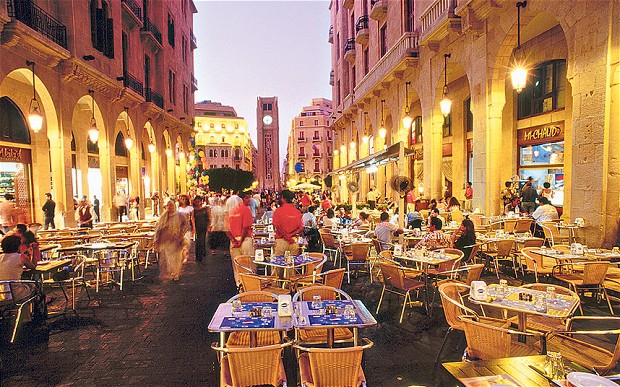
Beirut’s ‘Digital District’ in the shadow of the dazzling Al-Omari mosque has some way to go before it rivals the likes of Silicon Alley or London’s Shoreditch, but the tech scene in Beirut is creating optimism for the future. There is also a British connection. The UK Tech Hub lies at the heart of the Digital District and is planned to an integral part of the tech ecosystem. The hub will send more than ten Lebanese start-ups to the UK where they will be mentored and their business "accelerated".
In a week when another Arabic Mediterranean city was bombed, for once it was the people of Tunis who had to bear the tragedy and not the weathered people of Beirut who have had to endure crisis after crisis over the past four decades.
The Lebanese Civil War broke out in 1975 and the city was divided across the Green Line between Christians and Muslims and the past 40 years have seen Israeli sieges, regular assassinations and a city pushed to the limit.
But Beirut has been inching back for years. Its traditionally strong banking sector has been through a boom in recent years and redevelopment such as the nascent Digital District and the modern airport have seen tourism hit record numbers.
Besieged by three sides by Turkey, Israel and Syria, the latter’s Civil War may yet lead to further turmoil and chaos, but Beirut’s tech entrepreneurs seem confident and that confidence is being backed by serious cash from around the Arab region.
Tech hubs, which Beirut may yet become, need investment and they ultimately need exits so the cluster continues to grow. In the MENA region (Middle-east and North Africa) tech hubs are prospering in Amman, Riyadh, Cairo and even less likely places such as Gaza and the West Bank. There is also the example of Tel Aviv, which is one of the biggest tech hubs in the world.
Even if the oil price is at its lowest point for years, Beirut has always been a place that attracts money, be that the jet set who used to flock to Beirut in 1960s or Sheikhs from more conservative emirates looking for places and things to spend their cash on.
The Arabnet conference has taken place in Beirut for the past five years and has been the launching pad for the city’s tech culture. This week at the show, regional startup accelerator Flat6Labs that it was starting its first tech programme in the city, an initiative that over the next five years will see them invest seed money amounts of up to $50,000 in more than 100 companies.
More of these investments are likely to come, especially after an initiative between the Central Bank and startup companies called the Circular 331 Scheme that means $400 million will be available in funds to grow these companie.
Beirut doubtlessly has challenges ahead and the re-election across the border of Benjamin Netanyahu and the Likud party means an expansionsist Israeli policy may find Lebanon in the middle of more contention as the Syrian Civil War continues to wreck the country.
On walking a few metres away from the Beirut Digital District and the razzmatazz of Arabnet’s conference party, the glitz fades very quickly and the surrounding streets and bullet marked buildings show the Beirut that was once so bitterly fought over.
Nobody wants those days to return, but there are many signs that this is a city that refuses to die and is rising from the ashes, preparing to regain influence in the Middle East and driven by a startup and entrepreneurial community that has support from investors and the people with the smart money.



